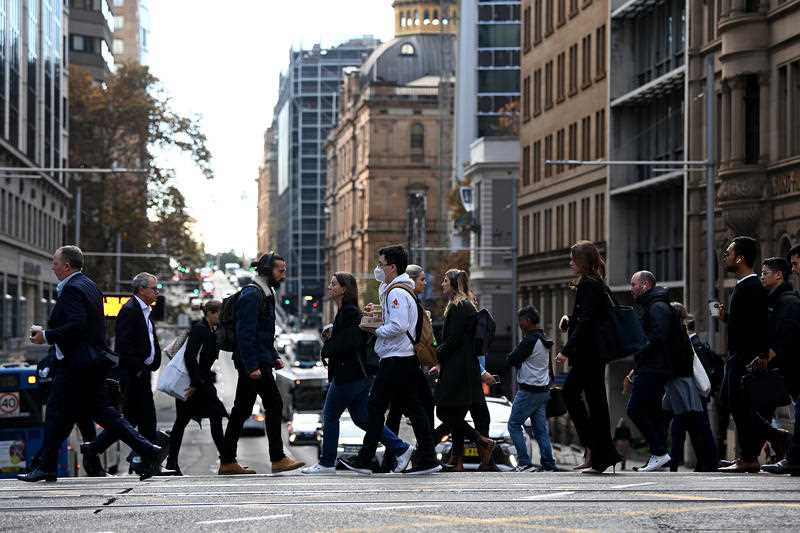The unemployment rate plummeted to 3.5 per cent in June, the lowest rate in 48 years, as Australia’s great jobs boom continued.
The drop, from 3.9 per cent in May, was much better than economists were expecting, and Deutsche Bank economist Phil O’Donaghoe said it was one of the best labour market reports in Australian history.
“You can never get too carried away with any number, whether it’s positive or negative, but really it is just an extraordinary strong print, really adding to a very, very robust demand story here in Australia,” he told ausbiz television.
Australian Bureau of Statistics head of labour data Bjorn Jarvis said the June figure was the lowest unemployment rate since August 1974, when the rate was 2.7 per cent and the survey was quarterly.
CommSec senior economist Ryan Felsman called the figure a “staggering low” and a sign of an incredibly tight labour market.
Economists said the low unemployment rate would increase pressure on the Reserve Bank to aggressively hike interest rates given the RBA didn’t anticipate unemployment falling to about 3.5 per cent until June 2023.
NAB economist Taylor Nugent said the next RBA interest rate rise would likely be either 50 or 75 basis points, and a 100-basis point hike couldn’t be ruled out.
The number of unemployed people in June fell by 54,300, to 493,900 people.
There were nearly as many job vacancies in June – 480,000 – as there were jobless people. Before the coronavirus pandemic there were 3.1 unemployed people per job vacancy.
Employment rose sharply by 88,400 people, smashing expectations of a 30,000-strong rise.
The participation rate rose from 66.7 per cent to 66.8 per cent, a record high and 0.9 percentage points above pre-pandemic levels.
The unemployment rate fell for both men and women, both by 0.4 per percentage points. The 3.4 per cent unemployment rate for women was the lowest since February 1974, while the 3.6 per cent jobless rate for men was the lowest since May 1976.
Total hours worked decreased slightly, which economists said was likely due to the high number of COVID-19 and influenza cases. Absenteeism due to illness was at the second-highest level on record.
Full-time jobs increased for eight straight months and AMP chief economist Shane Oliver said he expected the unemployment rate would likely fall further, to about 3.2 per cent in the next three to six months.
“Thereafter it’s likely to start rising again, reflecting the lagged impact of rising interest rates and falling real incomes on economic growth and hence labour demand,” he wrote in a research note.
Dr Oliver said while a 48-year low in the unemployment rate was obviously good news, the comparison to 1974 was “not necessarily a good omen, as after that we slid into a bad bout of stagflation”.
“Of course, many of the circumstances are different today, but the 1970s experience highlights the need for the RBA to act quickly,” he said.
Acting employment minister Mark Butler welcomed news of the drop in unemployment.
“This is all terrific news for tens of thousands of people who find themselves in work who weren’t last month,” he told reporters in Adelaide.
“It also reinforces the incredible tightness of Australia’s labour market and the need for government to work collaboratively with business and with unions to boost productivity.”
A summit is planned for September to address economic constraints.
Acting opposition leader Sussan Ley said the jobs result was a testament to the former coalition government’s action, including the national workforce strategy.
“All we’ve seen from Anthony Albanese since his election is a plan to have a plan with his pledge to hold a summit not this month, not next month but the month after,” she said.
“It is time for them to stop talking about problems and get on do something.”
By Derek Rose and Andrew Brown in Sydney



